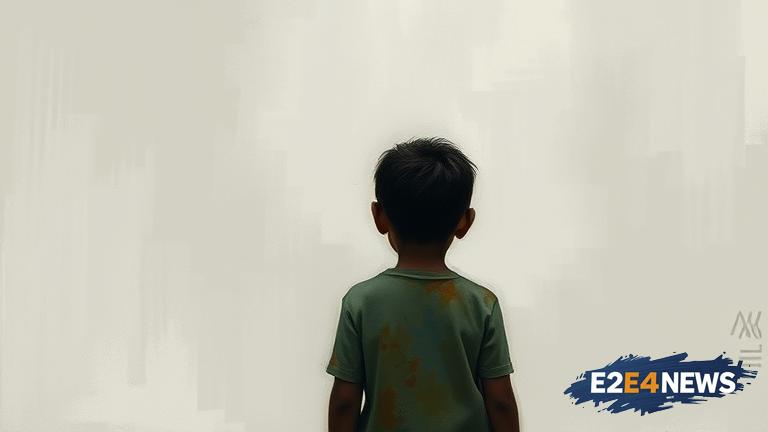Child trafficking is a complex and multifaceted issue that has been plaguing societies for centuries. It is estimated that millions of children are trafficked every year, with the majority being forced into labor, sex trade, or other forms of exploitation. In Nigeria, child trafficking is a significant problem, with many children being trafficked within the country or to other parts of the world. The root causes of child trafficking are varied and complex, but some of the most significant factors include poverty, lack of education, and cultural practices that perpetuate the exploitation of children. Many families in Nigeria live in poverty, and the promise of a better life for their children can be a powerful lure for traffickers. Additionally, the lack of access to education and job opportunities can make children more vulnerable to trafficking. Cultural practices such as early marriage and forced labor also contribute to the problem. Furthermore, the breakdown of traditional family structures and the rise of urbanization have created an environment in which children are more likely to be trafficked. The Nigerian government has implemented various policies and laws to combat child trafficking, including the Trafficking in Persons (Prohibition) Law Enforcement and Administration Act. However, more needs to be done to address the root causes of the problem and to provide support to victims. This includes increasing access to education and job opportunities, as well as providing social services and support to families and communities. It is also essential to raise awareness about the issue and to involve communities in the fight against child trafficking. Moreover, the international community must work together to combat child trafficking, as it is a global problem that requires a global response. The United Nations has implemented various initiatives to combat child trafficking, including the Convention on the Rights of the Child and the Palermo Protocol. These initiatives provide a framework for countries to develop policies and laws to combat child trafficking and to provide support to victims. In addition to these efforts, it is essential to address the demand side of child trafficking, including the demand for cheap labor and sex. This requires a fundamental shift in societal attitudes and norms, as well as the implementation of policies and laws that prevent the exploitation of children. Ultimately, combating child trafficking requires a comprehensive and multifaceted approach that addresses the root causes of the problem and provides support to victims. It is a complex and challenging issue, but with the right approach and commitment, it is possible to make a significant difference in the lives of millions of children around the world. The Nigerian government and international community must work together to combat child trafficking and to ensure that all children have the opportunity to grow and develop in a safe and supportive environment. By understanding the root causes of child trafficking and implementing effective solutions, we can create a world in which all children are protected from exploitation and have the opportunity to reach their full potential. Child trafficking is a pervasive issue that affects not only the children who are trafficked but also their families and communities. It is a problem that requires a comprehensive and sustained response, including increased awareness, policy changes, and community engagement. The fight against child trafficking is a long-term effort that requires the commitment and dedication of governments, organizations, and individuals around the world. By working together, we can make a significant difference in the lives of millions of children and create a world in which all children are protected from exploitation. The issue of child trafficking is complex and multifaceted, and it requires a comprehensive approach that addresses the root causes of the problem. This includes addressing poverty, lack of education, and cultural practices that perpetuate the exploitation of children. It also requires the implementation of policies and laws that prevent the exploitation of children and provide support to victims. Furthermore, it is essential to raise awareness about the issue and to involve communities in the fight against child trafficking. The Nigerian government and international community must work together to combat child trafficking and to ensure that all children have the opportunity to grow and develop in a safe and supportive environment. By understanding the root causes of child trafficking and implementing effective solutions, we can create a world in which all children are protected from exploitation and have the opportunity to reach their full potential.
